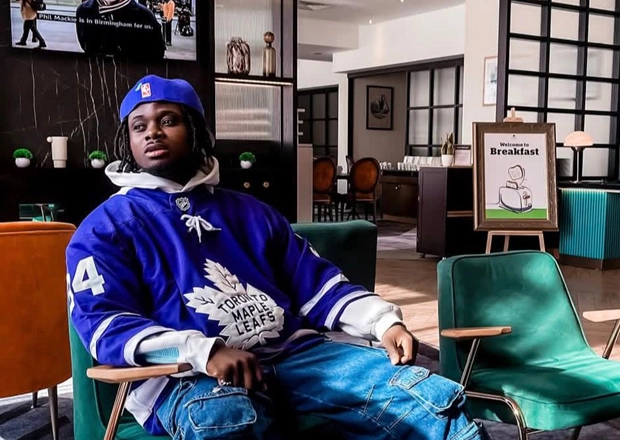Kuami Eugene, a prominent figure in the Highlife and Afrobeat music scene, found himself at the center of a social media storm after participating in the viral “Pretty Little Baby” challenge on TikTok. This global trend involves users creating videos featuring a range of endearing subjects, including baby animals, toddlers, retro fashion, and beauty tutorials, all set to the tune of Connie Francis’ 1962 hit song of the same name. While many celebrities worldwide embraced the challenge, Kuami Eugene’s participation drew unexpected and predominantly negative reactions from his followers, particularly in Ghana.
The backlash manifested in a flood of comments urging the singer to remove his video from the platform. The intensity of the response prompted Kuami Eugene to address the issue during a TikTok Live session. He expressed his surprise and bewilderment at the sheer volume of negative feedback he received, especially considering the lighthearted and playful nature of his participation in the challenge. He explained that he joined the trend simply because it was popular and he anticipated some negative reactions, intending it as a lighthearted joke. However, the scale of the backlash far exceeded his expectations.
Adding another layer to the situation, Kuami Eugene contrasted the public’s reaction to the “Pretty Little Baby” challenge with the comparatively lukewarm reception to his latest song release, “Do Better.” He pointed out the irony of receiving significantly more attention, albeit negative, for a playful TikTok video than for his professional musical work. This observation led him to speculate that the criticism might stem from a pre-existing sentiment within a segment of his Ghanaian audience, a perception that they were simply waiting for an opportunity to criticize or “roast” him.
This incident provides a glimpse into the complex dynamics of celebrity and fan interaction in the digital age. It underscores the power of social media to amplify both positive and negative feedback, and how even seemingly innocuous actions can become the subject of intense scrutiny. The contrast between the reception of Kuami Eugene’s musical release and his TikTok video highlights the potential disconnect between an artist’s creative output and the public’s perception and engagement. It raises questions about the role of pre-existing biases in shaping online responses and the pressure faced by public figures to navigate the often unpredictable currents of social media sentiment.
The “Pretty Little Baby” challenge controversy also touches upon the broader cultural conversation around online trends and the pressures they create. While trends can be a source of fun and creative expression, they can also become grounds for judgment and criticism, particularly for public figures. Kuami Eugene’s experience serves as a reminder that online participation, even in seemingly harmless trends, can have unforeseen consequences and generate unexpected backlash. It reflects the heightened level of scrutiny faced by celebrities in the digital space and the challenges of managing public perception in an environment where opinions are readily shared and amplified.
In conclusion, the backlash faced by Kuami Eugene following his participation in the “Pretty Little Baby” challenge highlights the complex interplay of celebrity, social media, and public perception. It illustrates how online trends can become lightning rods for criticism, particularly for public figures, and how even lighthearted intentions can be misinterpreted and amplified in the digital echo chamber. The incident also underscores the pressure on artists to navigate the constantly evolving landscape of social media and the potential for online platforms to both elevate and undermine their creative endeavors. Ultimately, Kuami Eugene’s experience provides a case study in the challenges of maintaining a public persona in the age of viral trends and instant feedback.














